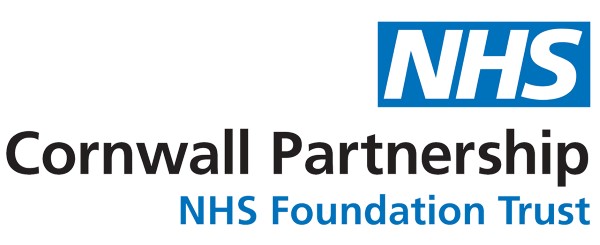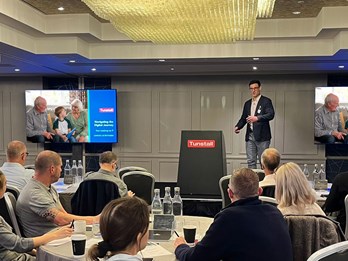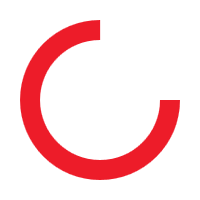The children we support are extremely vulnerable, and any delay or interruption to the treatment they receive could have serious implications for their recovery. Being able to deploy a solution so rapidly enabling us to continue helping them has been a real relief.
Michele Boyce, Service Lead Nurse, Kernow Health
The Challenge
Children with eating disorders would normally receive clinic-based care, but this is not possible during the COVID-19 pandemic.
How has Cornwall Partnership NHS Foundation Trust adapted its service to support this cohort of patients?

What We Did
Since 2017 Kernow Health CIC has delivered the Children’s Eating Disorder Service (CEDS) Physical Monitoring Service on behalf of Cornwall Partnership NHS Foundation Trust (CPFT) CAMHS as a sub-contractor. The Physical Monitoring Service team offers physical monitoring to children (8-18) with a range of restrictive eating disorders including Anorexia Nervosa. Children attending face to face clinics for monitoring of their vital signs and symptoms.
The demand on the CEDS Physical Monitoring Team has grown from a case load of 36 patients in 2017 to one of 161 in February 2022 (home and Face to Face monitoring). This increased demand is reflective of the national trajectory, “the number of young people completing an urgent pathway for eating disorders has increased by 141 per cent between quarter four in 2019/20 and quarter one in 2021/22” (Mental Health Network, 2021) due to the impact of the Covid-19 pandemic on children and young people’s mental health, and is expected to continue.
In November 2020 the NHS committed to investing into early intervention services to support young people in the early stages of eating disorders – First Episode Rapid Early Intervention for Eating Disorders (FREED), as part of the NHS Long term plan. With eating disorders causing serious physical and mental health problems which can last decades, the NHS expanded service will target care to those who have been living with a condition for fewer than three years, to tackle problems before they escalate.
In 2020, due to restrictions in place during the pandemic, risks to patients and practitioners, and a reduction in the use of onsite premises, it was essential for the CEDS Physical Monitoring Service team to find alternative ways to engage with their cohort of patients. Working with Tunstall, who had a well-established programme working alongside Cornwall Foundation Trust providing Digital Health Service remote monitoring by nurses for patients with Respiratory and Cardiac Conditions, Kernow Health and Tunstall were able to introduce remote health monitoring for patients.
Home monitoring was easy to setup and use, and meant no issues with missing school. Feedback was quick by text and ensured the team had up to date readings to hand and could communicate any concerns. Our daughter was able to use the monitoring equipment herself and this helped empower her in her recovery from her eating disorder. I believe the home monitoring contributed to a faster recovery time.
Patient's family member
About remote health monitoring
Patients use Tunstall’s myMobile app and peripheral medical devices (e.g. blood pressure monitor, thermometer and scales) in their own homes. They also access a special health interview that was developed based on the Junior MaRSiPAN (Management of Really Sick Patients with Anorexia Nervosa) risk assessment framework.
Depending on the child’s assessed physical risk monitoring ranged from daily to monthly, patients use devices to take their vital signs:
- Blood pressure and pulse from a lying and standing position
- Temperature
- Weight
They then answer the following symptom related questions:
- Experiencing light headedness
- Fainting episodes
- Ability to sit up from lying flat
- Ability to stand from a squat position
All the information is collected via the myMobile app on the patient’s smart device, and is automatically uploaded to ICP triagemanager, where any breaches of parameters set for individual patients will raise an alert on the system.
Clinicians can log in to a secure portal to view a colour
coded dashboard which prioritises patients according to
the need for intervention. Individual patient’s readings can
also be viewed over time to monitor their progress.
Results
Feedback from patients, families and clinicians involved in the service is very positive. Benefits include:
- Vulnerable eating disorder patients are enabled to monitor their physical recovery without the need for face to face contact, maximising the effective use of resources within the CEDS team
- Early identification of stalling or falling physical recovery and response, reducing the risk of escalation to an urgent case and avoiding secondary care admission
- The CEDS Team are able to use regular, accurate data to drive clinical decision making
- This digital solutions will support the development of the pathway from ward to physical monitoring service to ensure a safe referral process
- Enabling the CEDS team to manage the caseload and its increase effectively, supporting the achievement of the access and waiting time standards.
- Reducing anxiety some patients have regarding travelling to and attending clinics, and the associated expense
A total of £81,000 costs were avoided (FY 2021/22) as a result of the remote monitoring service due to reduced inpatient stays, Emergency Department stays, and use of the community clinic room, as well as reduced environmental impact, with the service saving:
- 64.5 hours of travel time per patient
- 978 miles per patient not travelled
- £890 saved per patient in petrol costs
- 546kg CO2e savings per patient
In April 2021 the development and digitalisation of the Children’s Eating Disorder Physical Monitoring Service using remote healthcare monitoring equipment, was supported with capital and revenue funding from the NHSE&I Digital Community Health Services Programme.
This funding enabled an evaluation to determine whether this digital capability improves the capacity to manage assessed children using this remote monitoring model.
Download the full case study to read more about the evaluation.
Download




